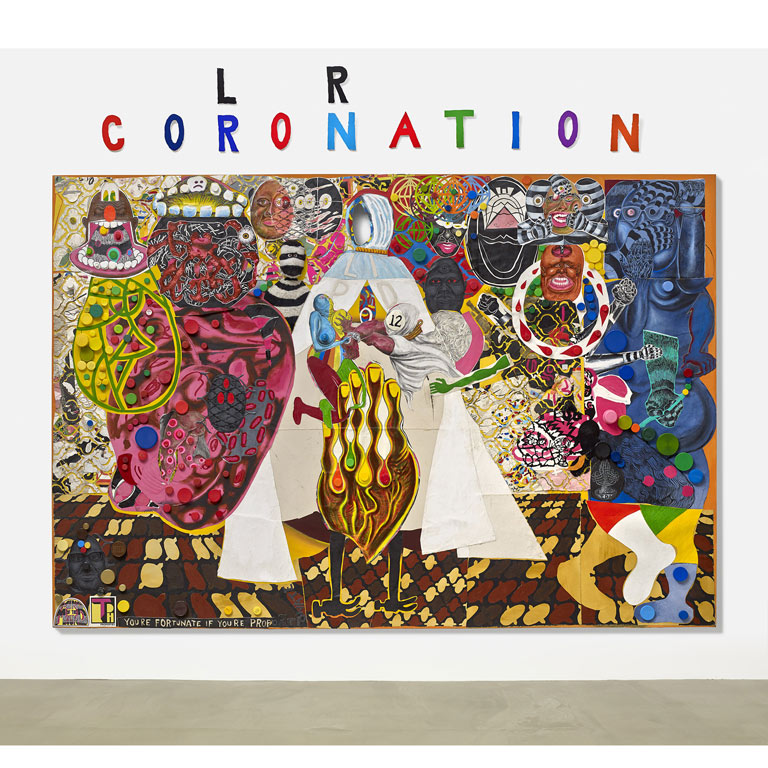For almost two decades, Trenton Doyle Hancock has been constructing his own fantastical narrative that continues to develop and inform his prolific artistic output. Part fictional, part autobiographical, Hancock’s work pulls from his own personal experience, art historical canon, comics and superheroes, pulp fiction, and myriad pop culture references, resulting in a complex amalgamation of characters and plots possessing universal concepts of light and dark, good and evil, and all the grey in between.
Hancock transforms traditionally formal decisions—such as his use of color, language, and pattern—into opportunities to create new characters, develop sub-plots and convey symbolic meaning. Hancock’s works are suffused with personal mythology presented at an operatic scale, often reinterpreting Biblical stories that the artist learned as a child from his family and local church community. His exuberant and subversive narratives employ a variety of cultural tropes, ranging in tone from comic-strip superhero battles to medieval morality plays and influenced in style by Hieronymus Bosch, Max Ernst, Henry Darger, Philip Guston and R. Crumb. Text embedded within the paintings and drawings both drives the narrative and acts as a central visual component. The resulting sprawling installations spill beyond the canvas edges and onto gallery walls.
As a whole, Hancock’s highly developed cast of characters acts out a complex mythological battle, creating an elaborate cosmology that embodies his unique aesthetic ideals, musings on color, language, emotions and ultimately, good versus evil. Hancock’s mythology has also been translated through performance, even onto the stage in an original ballet, Cult of Color: Call to Color, commissioned by Ballet Austin, and through site-specific murals for the Dallas Cowboys Stadium in Dallas, TX, and at the Seattle Art Museum’s Olympic Sculpture Park in Seattle, WA.


